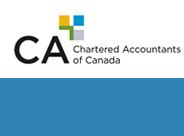Professional certification, trade certification, or professional designation, often called simply certification or qualification, is a designation earned by a person to assure qualification to perform a job or task. Not all certifications that use post-nominal letters are an acknowledgement of educational achievement, or an agency appointed to safeguard the public interest.

Landscape architecture is the design of outdoor areas, landmarks, and structures to achieve environmental, social-behavioural, or aesthetic outcomes. It involves the systematic design and general engineering of various structures for construction and human use, investigation of existing social, ecological, and soil conditions and processes in the landscape, and the design of other interventions that will produce desired outcomes.

Chartered accountants were the first accountants to form a professional accounting body, initially established in Scotland in 1854. The Edinburgh Society of Accountants (1854), the Glasgow Institute of Accountants and Actuaries (1854) and the Aberdeen Society of Accountants (1867) were each granted a royal charter almost from their inception. The title is an internationally recognised professional designation; the certified public accountant designation is generally equivalent to it. Women were able to become chartered accountants only following the Sex Disqualification (Removal) Act 1919 after which, in 1920, Mary Harris Smith was recognised by the Institute of Chartered Accountants in England and Wales and became the first woman chartered accountant in the world.

Eta Kappa Nu (ΗΚΝ) or IEEE-HKN is the international honor society of the Institute of Electrical and Electronics Engineers (IEEE). Joining HKN is by invitation only. Membership is a lifelong designation for individuals who have distinguished themselves as students or as professionals in electrical engineering, computer engineering, computer science, and other fields of IEEE interest.

Capilano University (CapU) is a teaching-focused public university based in North Vancouver, British Columbia, Canada, located on the slopes of the North Shore Mountains, with programming that also serves the Sea-to-Sky Corridor and the Sunshine Coast. The university is named after Chief Joe Capilano Sa7plek (Sahp-luk) who was the leader of the Squamish people (Sḵwx̱wú7mesh) from 1895 to 1910.

The South African Institute of Chartered Accountants (SAICA), South Africa’s pre-eminent accountancy body, is widely recognised as one of the world’s leading accounting institutes. The institute provides a wide range of support services to more than 48,000 members and associates who are chartered accountants (CAs(SA)), as well as associate general accountants (AGAs(SA)) and accounting technicians (ATs(SA)).
The American Institute of Certified Planners (AICP) is the American Planning Association's professional institute. AICP certifies professionals in the United States in the field of town planning and assists planners in the areas of ethics, professional development, planning education, and the standards of planning practice. Members of AICP pledge to adhere to a detailed Code of Ethics and Professional Conduct. Once certified, professional planners may place the designation "AICP" after their name to indicate their membership in AICP, and their mastery of the principles, skills, knowledge, and experience determined by the organization as essential for a professional planner.
Legal executives are a form of trained legal professional in certain jurisdictions. They often specialise in a particular area of law. The training that a Legal Executive undertakes usually includes both vocational training and academic qualifications.
An athletic scholarship is a form of scholarship to attend a college or university or a private high school awarded to an individual based predominantly on their ability to play in a sport. Athletic scholarships are common in the United States and to a certain extent in Canada, but in the vast majority of countries in the world they are rare or non-existent.

An agriculturist, agriculturalist, agrologist, or agronomist, is a professional in the science, practice, and management of agriculture and agribusiness. It is a regulated profession in Canada, India, the Philippines, the United States, and the European Union. Other names used to designate the profession include agricultural scientist, agricultural manager, agricultural planner, agriculture researcher, or agriculture policy maker.

The Canadian Institute of Chartered Accountants (CICA) was incorporated by an Act of the Parliament of Canada in 1902, which later became known as the Canadian Institute of Chartered Accountants Act.

Lakeland College is a post-secondary college in Alberta, Canada. It is publicly funded, and maintains two campuses in Vermilion and Lloydminster. Lakeland serves over 7,000 students through the academic year with 2,223 studying full- and part-time.
Following is a partial list of professional certifications in financial services, with an overview of the educational and continuing requirements for each; see Professional certification § Accountancy, auditing and finance and Category:Professional certification in finance for all articles. As the field of finance has increased in complexity in recent years, the number of available designations has grown, and, correspondingly, some will have more recognition than others. Note that in the US, many state securities and insurance regulators do not allow financial professionals to use a designation — in particular a "senior" designation — unless it has been accredited by either the American National Standards Institute or the National Commission for Certifying Agencies.
The American Society of Interior Designers (ASID) is a nonprofit organization based in the United States that promotes the profession of interior design. It has chapters throughout the United States and Canada. Throughout all of the associations of ASID within the United States and Canada there are many sections within the American Society of Interior Designers, typically in all different states or areas. Each area typically has a certain number of members and they all work together on making Interior Design a better place and to help other Interior Designers within the organization. All of these sections are incorporated in typical and beneficial ways to make the organization a better environment for everyone. In ASID, interior designers will all come together and work together as a team. Some of the most important parts of ASID and being involved are the extended History, being a member and what kind of benefits a person shall get as being part of this organization, learning the policies, some issues that can be come across, and what the foundation is all about. To be a member is it good to be qualified as a professional or student interior designer.
Registered Professional Planner (RPP) is the term for a registered urban planner in some Canadian Provinces and Territories. Some jurisdictions protect the RPP title, requiring individuals to be registered members of a professional association in order to use the title.
An urban planner is a professional who practices in the field of town planning, urban planning or city planning.
The Global Planners Network is a group of spatial planning institutes and other organizations, who have signed the Vancouver Declaration. Current GPN membership extends to 25 organizations representing more than 150,000 planners.
The Irish Planning Institute (IPI) is an all-island professional body representing professional planners engaged in physical and environmental planning in the Republic of Ireland and Northern Ireland.
Urban planning education is a practice of teaching and learning urban theory, studies, and professional practices. The interaction between public officials, professional planners and the public involves a continuous education on planning process. Community members often serve on a city planning commission, council or board. As a result, education outreach is effectively an ongoing cycle. Formal education is offered as an academic degree in urban, city, rural, and/or regional planning, and more often awarded as a master's degree specifically accredited by an urban planning association in addition to the university's university-wide primary accreditation, although some universities offer bachelor's degrees and doctoral degrees also accredited in the same fashion; although most bachelor's degrees in urban planning do not have the secondary-layer of urban planning association accreditation required for most positions, relying solely on the university's primary accreditation as a legitimate institution of higher education. At some universities, urban studies, also known as pre-urban planning, is the paraprofessional version of urban and regional planning education, mostly taken as a bachelor's degree prior to taking up post-graduate education in urban planning or as a master's or graduate certificate program for public administration professionals to get an understanding of public policy implications created by urban planning decisions or techniques.
The Insurance Institute of Canada is a not-for-profit organization which provides nationally standardized professional development programs for the insurance industry in Canada. Founded in 1952 and headquartered in Toronto, the IIC is an umbrella organization of 19 provincial and regional chapters across Canada.








